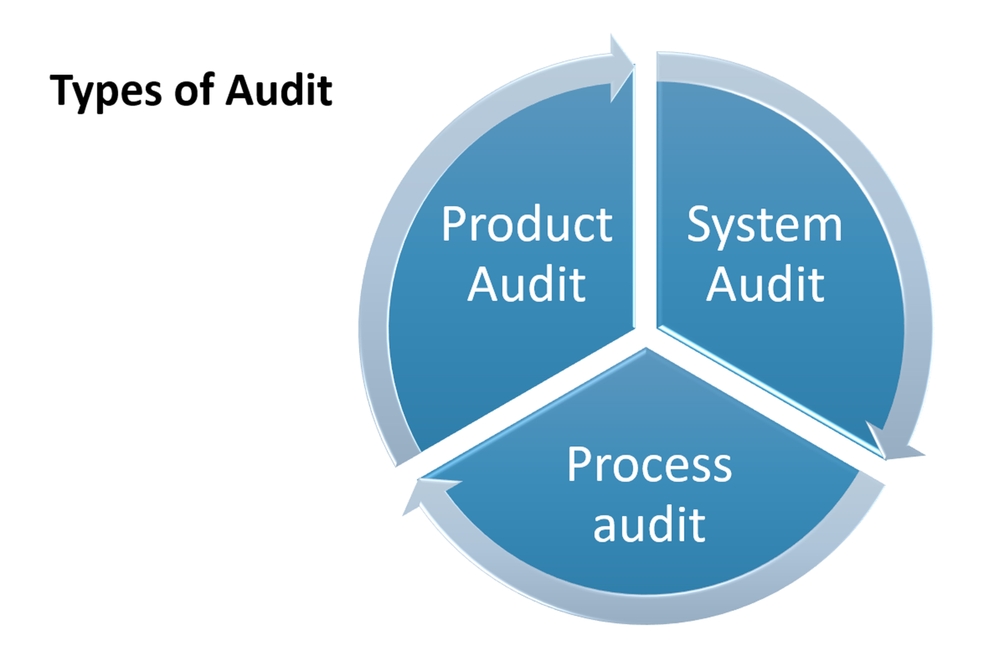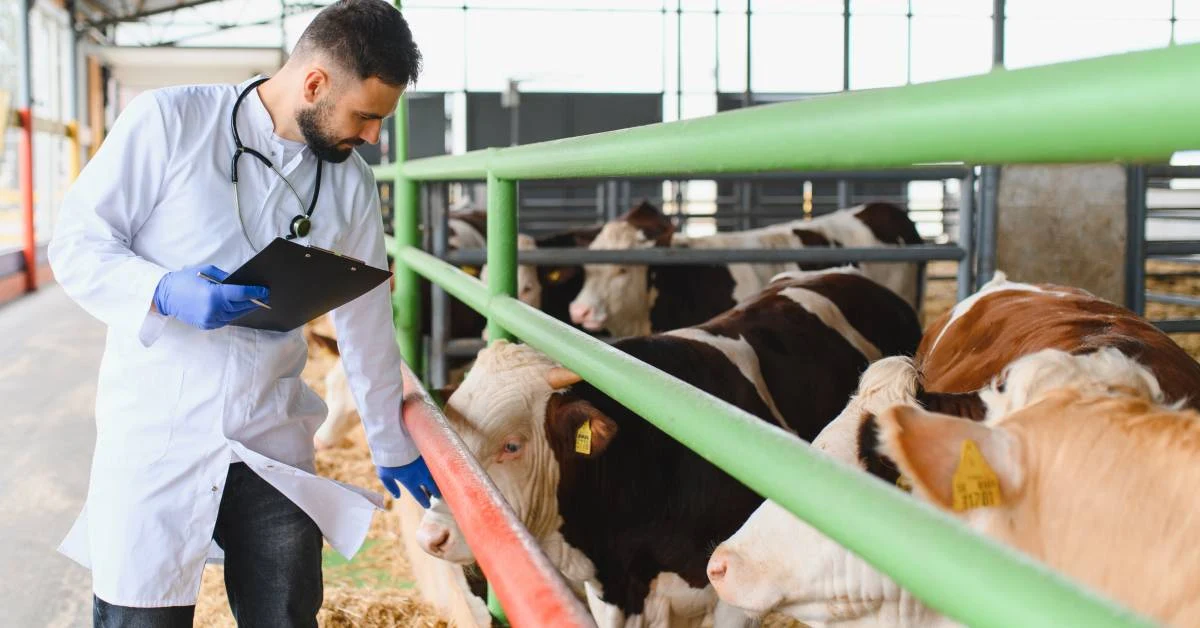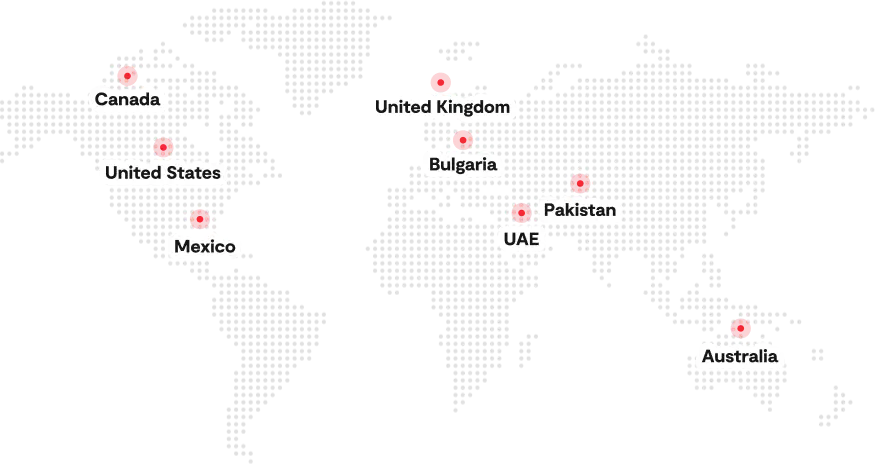Food safety certifications have become essential for ensuring the quality and safety of the products consumers rely on. As international food safety standards grow more stringent, certifications like the Safe Quality Food (SQF) audit are vital for businesses to comply with regulations, build consumer trust, and access global markets.
An SQF audit serves as a food safety benchmark, helping companies demonstrate their commitment to meeting rigorous standards. This blog will cover everything you need about SQF audits and offer actionable tips for preparing for and passing them effortlessly.
What is an SQF Audit?
An SQF Audit is an examination conducted to ensure a company’s food safety practices meet the standards set by the SQF Program. The food safety audit is crucial to achieving SQF certification, demonstrating that a business complies with globally recognized food safety protocols.
Overview of the SQF Program
The SQF Program is a comprehensive food safety and quality management certification system designed to manage risks and ensure safe production. It consists of three key components:
- Food Safety Fundamentals: The foundational level that ensures basic food safety requirements are met.
- Food Safety Certification: Focuses on implementing a food safety management system that aligns with regulatory standards.
- Quality Certification: Beyond food safety, including product quality, helping businesses deliver consistent, high-quality products.
Global Relevance
SQF certification holds immense global relevance in today’s interconnected food industry. Recognized worldwide, the Safe Quality Food (SQF) Program is a trusted benchmark for food safety management across various regions and markets.
One primary reason for this international acceptance is its alignment with global food safety protocols, including the Global Food Safety Initiative (GFSI) and the Food and Drug Administration’s (FDA) Food Safety Modernization Act (FSMA). The GFSI is an internationally recognized body that sets stringent requirements for food safety systems.
It was established to harmonize food safety standards globally, ensuring that certified businesses adhere to the highest safety standards regardless of location. Additionally, the FSMA, enforced by the FDA, is another critical regulatory framework to prevent foodborne illnesses and ensure that food companies in the U.S. meet modernized safety requirements.
Why does SQF matter?
Achieving SQF certification is vital for food businesses to meet regulatory obligations and thrive in a highly competitive and safety-conscious market. With food safety being a top concern globally, businesses that secure SQF certification signal their commitment to rigorous safety practices, thereby enhancing consumer trust.
Furthermore, SQF certification opens doors to international markets that may be inaccessible without such credentials. Many countries and regions require businesses to meet specific food safety certifications for trade. Having an SQF certification aligned with global food safety regulations ensures that companies can quickly enter new markets, expanding their customer base and driving growth.
Additionally, SQF certification ensures that products meet both local and global safety and quality standards. This compliance helps businesses navigate the complex web of regulations across different countries and regions, reducing the risk of non-compliance that could result in legal penalties or disruptions in trade.
Connection to Regulatory Standards
The SQF audit and certification process are closely tied to major international regulatory frameworks such as GFSI and FSMA. This ensures that businesses meet not only their home country’s food safety regulations but also the standards of the regions where they operate or export. This alignment is essential for companies looking to maintain compliance across different jurisdictions.
For example, GFSI provides a globally recognized framework for assessing food safety systems. Many of the world’s largest food retailers and manufacturers use GFSI-recognized schemes, such as SQF, to evaluate and manage food safety risks within their supply chains.
Similarly, FSMA, specific to the U.S. market, focuses on preventing food safety issues before they occur, shifting from a reactive to a preventive approach. Companies that comply with SQF certification automatically adhere to many of FSMA’s core requirements, making it easier for them to meet U.S. regulations and avoid costly delays or penalties.
This close connection to regulatory standards ensures that food businesses certified under the SQF Program can operate confidently in various regions, knowing that their practices align with the latest legal and safety requirements.
Types of SQF Audit
There are several types of SQF audits, each designed for different stages of certification and compliance:

1. Certification Audit
This is the initial audit required for a company to achieve SQF certification. It assesses whether the business meets the necessary food safety and quality requirements.
2. Surveillance Audit
After certification, businesses undergo periodic surveillance audits to maintain their certification. These audits ensure that food safety and quality practices are consistently followed.
3. Re-Certification Audit
SQF certification must be renewed annually through a re-certification SQF audit, ensuring that businesses meet evolving food safety and quality standards.
4. Unannounced Audit
Unannounced audits are conducted randomly, adding an extra layer of compliance by evaluating how well a business maintains its standards on a day-to-day basis.
SQF Audit Process – Step-by-Step Breakdown
Understanding the SQF audit process is crucial for successful certification. Here’s a detailed breakdown of each stage:
Pre-Audit Preparation
Before the auditor arrives, it’s essential to ensure that all necessary documentation is current. This includes food safety policies, inspection logs, and employee training records. Conducting internal reviews regarding the SQF audit will help identify potential non-compliance areas.
Documentation Review
Auditors will closely examine your records to ensure they are well-maintained and accurate. Clear, comprehensive documentation is critical, demonstrating your ongoing commitment to food safety.
Facility Inspection
The SQF audit will thoroughly inspect your facility, focusing on cleanliness, product handling procedures, and adherence to safety protocols. Auditors will assess whether the facility meets industry standards for preventing contamination and maintaining food quality.
Interviewing Staff
Auditors often interview employees to gauge their knowledge of food safety practices. It’s important that all staff are well-trained and can demonstrate their understanding of critical safety procedures.
Report & Corrective Actions
After the audit, a detailed report will be provided, highlighting areas of compliance and any non-conformities. Corrective actions must be implemented to address issues and ensure ongoing compliance.
Final Audit Score
The final score you receive determines your certification status. Higher scores reflect better compliance, and businesses must achieve a minimum score to attain or retain their SQF certification.
Tips for Passing an SQF Audit
To ensure a successful SQF audit, here are some key tips:
Prepare Thorough Documentation
Well-organized and accessible documentation is essential for demonstrating food safety compliance. Ensure that all records, from training logs to inspection reports, are up-to-date and easy for auditors to review.
Train Employees Regularly
Employee training is crucial for passing an SQF audit. Regular training ensures that staff are familiar with food safety protocols and can confidently demonstrate their knowledge during the audit.
Conduct Internal Audits
Running internal audits allows you to identify non-conformities before the official audit. This proactive approach helps ensure that issues are addressed well in advance.
Use Technology for Compliance Tracking
Utilize digital tools, like Folio3 FoodTech’s Food Safety Software, to automate compliance tracking, streamline documentation, and stay on top of safety requirements.
Address Non-Conformities Promptly
Any issues identified during internal reviews or previous audits should be addressed immediately. Proactively fixing these issues can prevent them from escalating into major problems during the audit.
Stay Updated on SQF Requirements
SQF standards are continually evolving. Staying current with these changes will ensure that your business remains compliant with the latest requirements.
Prepare for Unannounced Audits
Being always audit-ready ensures that even unannounced audits are no cause for concern. Regularly maintaining standards across all operations will help you stay compliant.
Common Challenges in SQF Audits
Achieving SQF certification is essential for ensuring food safety and quality. However, many businesses face challenges during the audit process that can jeopardize their certification efforts. Here are some common challenges encountered in SQF audits, along with recommendations for overcoming them:
1. Record-Keeping Gaps
- Challenge: Consistent or complete documentation can lead to audit failures. Auditors expect to see well-maintained records that demonstrate compliance with SQF standards.
- Solution: Implement a robust record-keeping system that ensures all documentation, including food safety manuals, training logs, and food safety inspection reports, is regularly updated and easily accessible. Conduct periodic reviews of records to identify and address any gaps before the audit.
2. Employee Misunderstanding
- Challenge: Staff not adequately trained or familiar with safety protocols can lose audit points. A lack of understanding can also lead to errors in procedures or reporting.
- Solution: Invest in training programs covering SQF standards, food safety practices, and the audit process. Conduct regular refresher courses and simulations to ensure employees are well-versed in their roles and responsibilities during the audit.
3. Non-Compliance with SQF Standards
- Challenge: Some businesses may struggle to meet specific SQF requirements due to misunderstandings or a lack of resources.
- Solution: Perform internal audits to identify areas of non-compliance before the official audit takes place. Develop corrective action plans to address any deficiencies, ensuring that all team members are aware of their roles in maintaining compliance.
4. Technological Gaps
- Challenge: Relying on manual processes for tracking compliance and documenting safety practices can create inefficiencies and errors, making it difficult to demonstrate compliance during audits.
- Solution: Adopt digital systems for tracking compliance, documentation, and reporting. Tools that automate record-keeping can help eliminate human error and ensure that all information is up-to-date. Utilize software solutions specifically designed for SQF compliance to streamline processes and improve accuracy.
How Does Folio3 FoodTech’s Food Safety Software Help Achieve SQF Certification?
Folio3 FoodTech’s Food Safety Software is a comprehensive solution that empowers food businesses to meet stringent SQF certification standards.
Simplifying compliance management and automating critical tasks helps reduce human error, enhances operational efficiency, and ensures that food safety protocols are continuously met. Here’s how Folio3’s software facilitates SQF certification:
1. Automated Record Keeping
Maintaining accurate and up-to-date documentation is crucial for achieving and sustaining SQF certification. Folio3’s Food Safety Software automates tracking and updating compliance records, ensuring that all critical data—such as audits, corrective actions, and SOPs are securely stored and easily accessible. This saves time and minimizes the risk of non-compliance due to overlooked paperwork or manual errors.
2. Real-Time Compliance Monitoring
One of Folio3’s standout features is real-time compliance monitoring. The system continuously tracks various parameters—such as temperature controls, sanitation protocols, and production data—and provides immediate feedback if any deviation occurs. This enables businesses to take quick corrective actions, helping them always comply with SQF standards.
3. Training Modules
SQF certification requires that all employees are adequately trained in food safety practices. Folio3’s software includes built-in training modules that cover essential food safety protocols, hygiene standards, and audit preparations. These modules can be assigned to employees and tracked to ensure the entire team is prepared for audits and familiar with the latest safety practices, reducing the risk of non-compliance.
4. Customizable Audit Checklists
The software allows businesses to create and customize audit checklists specific to their operations and industry requirements. This feature ensures that companies are always prepared for internal and external audits, helping them stay organized and compliant with SQF guidelines. Customizable checklists simplify the audit process, ensuring all critical points are covered and documented.
5. Reporting and Analytics
Folio3’s Food Safety Software offers advanced reporting and analytics features that allow businesses to track their progress toward SQF certification. These reports provide insights into various areas, such as compliance performance, risk management, and food quality control. By analyzing this data, businesses can identify areas where improvements are needed, take proactive measures to enhance food safety practices, and ensure continuous compliance with SQF standards.
Benefits of Achieving SQF Certification
Achieving Safe Quality Food (SQF) certification benefits food businesses by demonstrating a commitment to food safety and quality. Here are the key advantages:
1. Enhanced Food Safety and Compliance
SQF certification aligns your business with globally recognized food safety regulations such as the Global Food Safety Initiative (GFSI) and the Food Safety Modernization Act (FSMA). This ensures that your products meet the highest safety and quality food safety standards, helping you comply with local and international regulations.
2. Increased Consumer Trust
Consumers are more concerned than ever about the safety and quality of the food they purchase. SQF certification signals to consumers that your business follows stringent food safety protocols, building trust and brand loyalty. Certified companies are often viewed as more reliable, significantly enhancing your business’s reputation.
3. Expanded Market Access
Many global retailers, food service companies, and manufacturers require SQF certification from their suppliers. By achieving SQF certification, you open doors to new markets, including partnerships with large retail chains that only source from certified suppliers. This certification can give your business a competitive edge, allowing you to expand domestically and internationally.
4. Operational Efficiency
The rigorous standards of SQF certification encourage businesses to streamline their operations, reducing inefficiencies and minimizing risks. By optimizing food safety management systems, businesses can lower the chances of costly recalls, foodborne illnesses, and regulatory fines. The continuous monitoring and documentation required for certification promote better operational oversight.
5. Improved Audit Readiness
SQF certification requires that you maintain robust documentation and implement preventive controls. This helps with internal processes and ensures you are always prepared for scheduled and surprise audits. Regular internal assessments and audits ensure compliance, mitigating the risk of penalties or operational disruptions.
6. Boosted Brand Credibility and Differentiation
With an SQF certification, your business stands out from competitors that lack formal food safety certification. The SQF logo on your products provides a mark of quality that can be leveraged in marketing and customer communications. It differentiates your brand as a food safety and quality leader, further enhancing your market position.
Final Checklist: Preparing for an SQF Audit
Preparing for an SQF (Safe Quality Food) audit is crucial for ensuring compliance and demonstrating your commitment to food safety. Here’s a detailed checklist to guide your preparations, covering essential documentation, facility readiness, employee training, and mock audits:
1. Documentation Review
Ensure all critical documents are organized and readily accessible:
- Food Safety Manuals: Comprehensive manuals outlining your food safety policies and procedures.
- HACCP Plans: Documentation detailing your hazard analysis and critical control points.
- Standard Operating Procedures (SOPs): Written procedures for all operations affecting food safety.
- Training Logs: Records of employee training sessions, including topics covered and attendance.
- Inspection Reports: Previous audit and inspection reports with documented corrective actions.
- Maintenance Records: Documentation of equipment maintenance, calibration, and servicing.
- Supplier Verification Records: Documents ensuring that suppliers meet food safety requirements.
- Sanitation Records: Logs detailing cleaning and sanitation activities, including schedules and results.
- Traceability Records: Documentation proving the ability to trace products through the supply chain.
- Recall Procedures: Written procedures and records for product recall processes.
2. Facility Walkthrough
Conduct a thorough walkthrough of your facility to ensure it meets the necessary standards:
- Cleanliness: Ensure that all areas, including production lines, storage areas, and restrooms, are clean and organized.
- Sanitation Stations: Verify that sanitation stations are available and fully stocked with supplies.
- Equipment Condition: Check that all equipment is properly maintained and functioning.
- Labeling: Confirm that all products are correctly labeled, including allergens and expiration dates.
- Pest Control: Ensure pest control measures are in place and functioning effectively.
- Safety Measures: Check that safety measures, such as fire exits and emergency equipment, are accessible and clearly marked.
3. Employee Training
Review key points and training requirements for your employees to ensure they are prepared:
- Food Safety Practices: Reinforce essential food safety practices, including personal hygiene, proper handling of food products, and allergen awareness.
- Audit Procedures: Educate employees on the SQF audit process, what to expect, and how to respond to auditor questions.
- Roles and Responsibilities: Ensure that each employee knows their specific role and responsibilities during the audit.
- Documentation Handling: Train staff on how to present documentation and records to auditors, emphasizing the importance of accuracy and completeness.
4. Mock Audits
Conduct a mock audit to identify any last-minute fixes:
- Simulation of Real Audit: Organize a mock audit using your internal team or an external consultant to simulate the audit process.
- Checklist Utilization: Use the official SQF audit checklist to guide the mock audit, ensuring all areas are covered.
- Identify Gaps: Document any areas of non-compliance or gaps in documentation and procedures identified during the mock audit.
- Corrective Actions: Develop and implement corrective actions for any issues found during the mock audit.
- Feedback Session: Hold a feedback session with your team to discuss the mock audit results and reinforce the importance of preparation.
Conclusion
Passing an SQF audit requires meticulous preparation, accurate documentation, and a well-trained staff. You can ensure compliance and certification success by staying informed about SQF requirements, conducting internal audits, and leveraging technology like Folio3 FoodTech’s Food Safety Software.
Ready to streamline your path to SQF certification? Contact Folio3 FoodTech for a demo and see how their food safety solutions can help you stay compliant and ahead of the curve.







